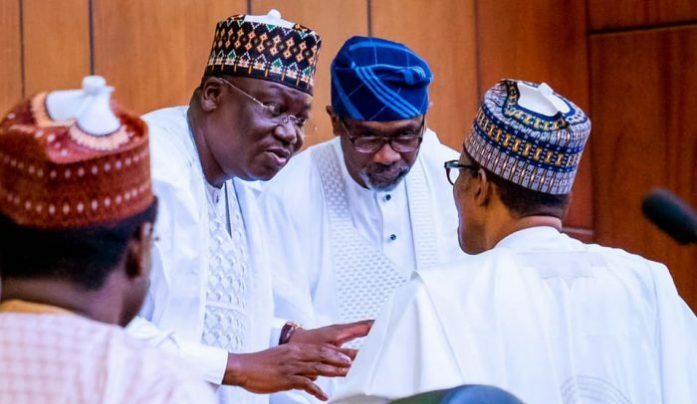The Lagos-Ibadan Expressway is just 128 kilometers—or about 85 minutes’ drive on legal speed-limit. In 1999, former President Obasanjo awarded a contract for its “rehabilitation and reconstruction”. But 24 years and almost six presidential terms later, that road is still there uncompleted. The late President Yar’adua and former President Goodluck Jonathan also both relaunched the project in May 2009 and July 2013 respectively. President Buhari resumed work on it in June 2016, but it has remained uncompleted still. Meanwhile, the cost of its reconstruction has risen from less than N50bn in 1999 to N91bn in 2009, to N167bn in 2013 to N310bn today.
Welcome to Nigeria. Few human societies will tolerate a situation such as this, but it is standard practice here. This is the Nigerian story everywhere you turn. The is the story of the Abuja-Kaduna-Kano Expressway too, and of the dualization of the 100km Suleja-Minna Road, commenced in January 2011, but still uncompleted 12 years later. Good things almost never turn out good here. We have poured billions of dollars into Ajaokuta Steel over the past 40 years, but without producing an ounce of steel. It is the same story with the dredging of The River Niger, our railway network, of electricity generation and distribution, of refineries, and hundreds of otherwise good things that could have happened to Nigeria since our self-government in 1960.
There is something sick about Nigeria that is difficult to grasp or explain. If you want to know it, don’t ask anybody. Just look at anything anyone—be they Nigerian government institutions, individuals or the so-called private sector—is doing in the name of Nigeria, as the few examples cited above, and you will feel the palpable sense of that malaise, even if you can’t put a finger or name to it precisely. We seem to dance around the same problems almost all the time. Thirty years ago, Nigeria frequently imported toxic fuel from some countries, despite being a net oil producer itself. Today, that situation has not changed. Thirty years ago, millions of our households lack electricity and water; it remains the same today. Thirty years ago, rebuilding the railway lines was a major project of the government; the same lines are still under construction today, with just a few completed.
How is all this to be explained? One answer we have always been served with is bad leadership and corruption. Almost everything about Nigeria is blamed on corruption, the national disease with which our leadership is supposedly peculiarly afflicted. But corruption alone cannot adequately explain this level of repeated national failure. It has to be something else more than corruption. And the search for a complete answer to the question of why we seem to have remained at the same point despite the passage of time, energy and resources is important, if we must move even a step further. I don’t have the answers myself, but I am confident that corruption cannot be the sole problem, however convenient that answer might seem.
- Rivers United survive Lobi Stars scare to win 2-1
- Armed Forces Remembrance Day tourney attracts over 250 golfers
Since 1978, when the Lagos-Ibadan Expressway was first constructed by the same Obasanjo who could not do it a second time with even more money, the Chinese have moved nearly 800 million people out of poverty. They have built hundreds of entirely new cities from the scratch, complete with towering skyscrapers for homes and offices, not to talk of roads, electricity and all other infrastructure. China got in on the game of building high-speed rail only in 2008. Today, just 15 years later, they have a network of over 40,000 kilometres of such rails, the longest in the world. Some mind-boggling cases of corruption went into doing all these things in China, but the jobs got done.
Indeed, the Chinese political economic system where state capitalism sits awkwardly alongside private profiteering is peculiarly designed to breed corruption, since all too often, the players driving state capitalism are intimately connected to those leading private companies. Yet, the jobs get done, and most often on record time. Moreover, China is not alone in getting things done despite corruption. In the US and the UK over the past two years, unbelievable levels of corruption trailed the fight against COVID-19 across all fronts of the fight.
In fact, the New York Times recently reported that it will take US federal and state authorities more than ten years to investigate and prosecute cases of corruption associated with the billions the government forked out in the furlough programme alone, a lot of which disappeared into private pockets. Yet, both countries developed vaccines in the middle of a most deadly pandemic, constructed whole new hospitals and intensive care units, and kept the economy and the livelihoods of hundreds of millions of people going in the middle of wholesale lockdowns of streets and workplaces. Why, even here in Nigeria, the British colonialists built the 1,343km Lagos-Kano rail line in just about 30 years (1898-1927), with nothing more than manual labour, primitive technology by today’s standards, and absolutely no oil money.
So, perhaps, one answer is a lack of collective imagination to govern ourselves the way other societies do; after all, the whole point of governance is to solve societal problems like building roads, bridges, rail lines, housing, electricity generation and distribution plants, educating our children, and so on. All kinds of infrastructure funding mechanisms known to humanity has been tried for various projects in Nigeria, from full government funding to private concessions, to SUKUK and whatever, but almost known has worked to deliver the desired projects. Corruption may be part of the problem, but there are ways to beat corruption in its own game and get the job done. So perhaps a lack of imagination is the problem.
At the same time, you will often be amazed, amused and deeply disturbed all at once when you sense the intensity with which even educated Nigerians fall for petty ethnic or religious sentiments when dealing with issues of national importance. In fact, 60 years into self-government, the very idea of Nigeria is still contested daily and almost all our politics revolves around this contestation, rather than on solving problems such as addressing poverty or building infrastructure. You just need to remember the amount of energy dissipated on things like Muslim-Muslim ticket or southern presidency, at the detriment of the things that affect the lives of all of us directly.
So, perhaps, a political culture that pays more attention to such issues rather than on matters like food and housing for all is also part of the problem. Such a political culture can only make corruption thrive, go undetected, or unpunished even where it is detected, as is often the case here. The things a people pay the most attention to invariably determine their collective destiny, whether they are aware of it or not. In other words, one answer to the question of why almost the entire history of Nigeria has been motion without movement is that we have a pointless, aimless politics. A politics designed specifically to dodge problems, rather than confront and solve them; a politics meant to achieve nothing of substance other than blow hot air; a politics based primarily on talk, rather than governmental and societal action; and a politics that has kept us where at the same point even as others get ahead with the passage of time. Welcome to Nigeria once again.




